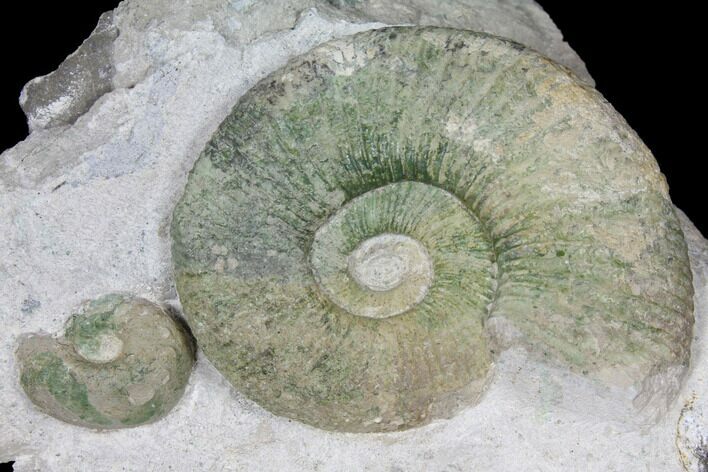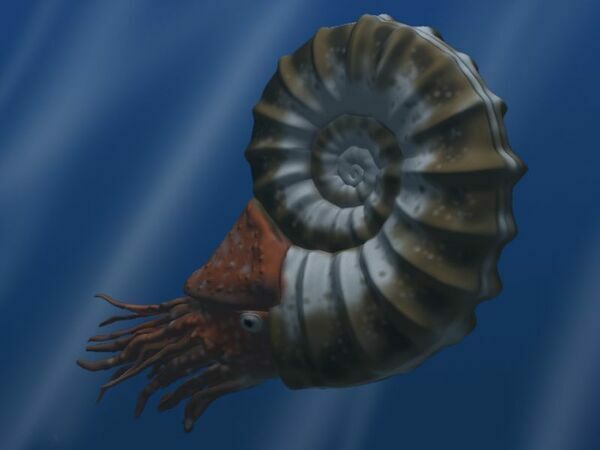This Specimen has been sold.
1.9" Ammonite (Orthosphinctes & Sutneria) Fossils on Rock - Germany
This is a beautiful green ammonite fossil association containing two ammonites, one of the genus Orthosphinctes (Lithacosphinctes) sp. and the smallest ammonite is of the species Sutneria platynota, collected from the Gräfenberg Quarry of Bavaria, Germany. They're upper Jurassic in age, or approximately 155 million years old. The majority of the rock surrounding the ammonites has been cleaned away.
The Gräfenberg Quarry is famous for the green ammonites (mostly Ardescia) that are found within the sedimentary rock. The green coloration of the ammonites is caused by the mineral glauconite. When exposed to weathering or erosion, glauconite will change color to orange, brown, or yellow.
About Ammonites
Ammonites were ancient marine cephalopods, similar to today's squids and octopuses, but with a defining feature: their distinctive, tightly coiled spiral shells. These shells, resembling those of modern nautiluses, served as both a protective home and a buoyancy aid, allowing ammonites to navigate the prehistoric seas with ease. First emerging around 240 million years ago in the Triassic Period, ammonites thrived for over 175 million years, adapting through numerous forms and sizes. As predatory creatures, they likely fed on smaller marine organisms, using their tentacles to capture prey. However, their long reign came to an end 65 million years ago at the close of the Cretaceous, coinciding with the mass extinction event that also eliminated the dinosaurs.
Ammonites were ancient marine cephalopods, similar to today's squids and octopuses, but with a defining feature: their distinctive, tightly coiled spiral shells. These shells, resembling those of modern nautiluses, served as both a protective home and a buoyancy aid, allowing ammonites to navigate the prehistoric seas with ease. First emerging around 240 million years ago in the Triassic Period, ammonites thrived for over 175 million years, adapting through numerous forms and sizes. As predatory creatures, they likely fed on smaller marine organisms, using their tentacles to capture prey. However, their long reign came to an end 65 million years ago at the close of the Cretaceous, coinciding with the mass extinction event that also eliminated the dinosaurs.
SPECIES
Orthosphinctes (Lithacosphinctes) sp. & Sutneria platynota
LOCATION
Gräfenberg Quarry, Bavaria, Germany
FORMATION
Malm Gamma 1
SIZE
1.9" & .6" wide on 3.4 x 2.6" rock
CATEGORY
SUB CATEGORY
ITEM
#125891
We guarantee the authenticity of all of our specimens.
 Reviews
Reviews












